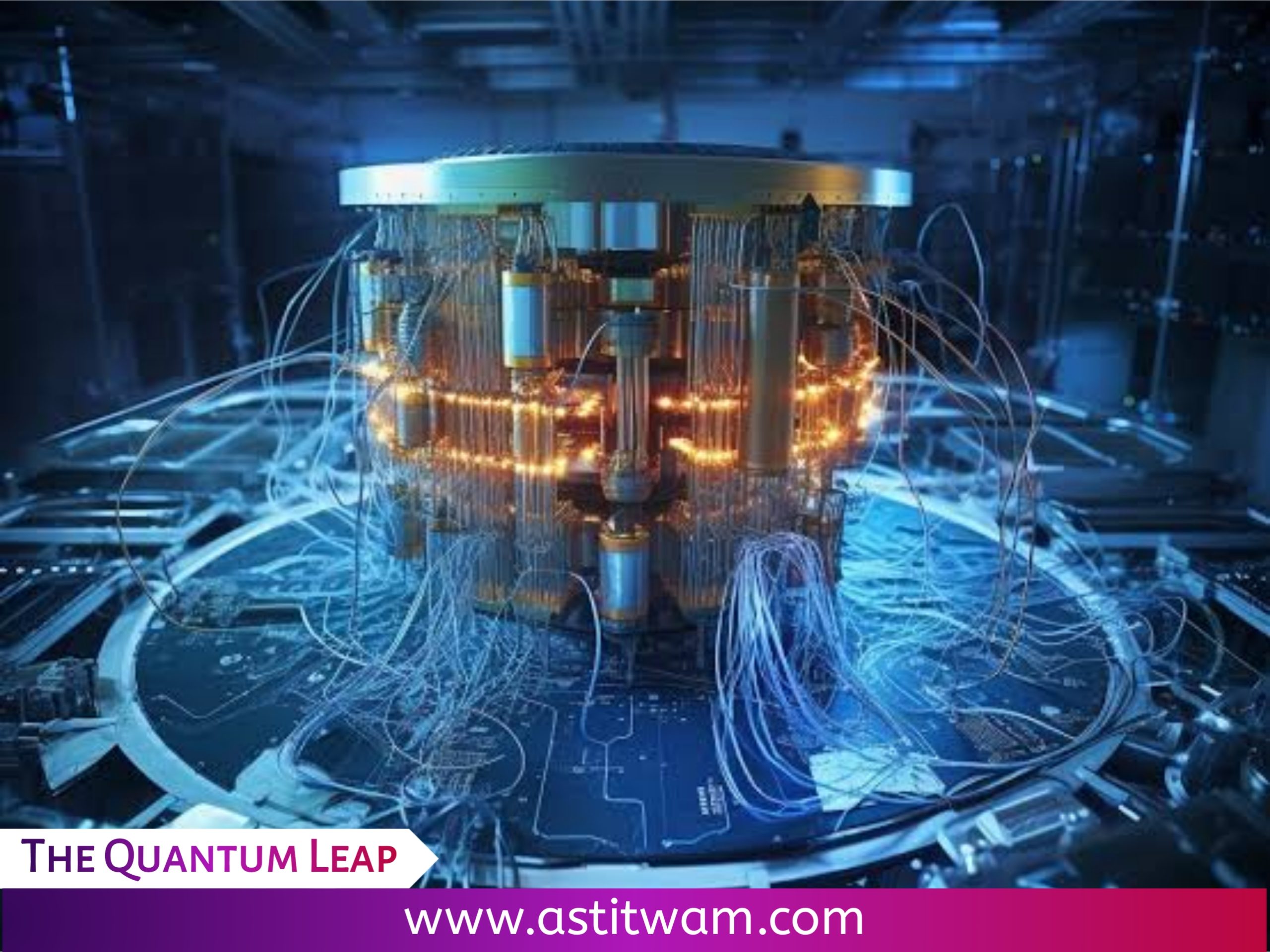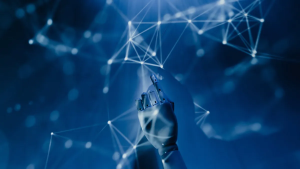The Quantum Leap: How AI is Catapulting Tech into the Future

Table of Contents
Introduction
As technology hurtles into the future, one transformative force is propelling it forward: Artificial Intelligence (AI). This groundbreaking technology is causing a quantum leap in our understanding of what’s possible. In this article, we’ll explore how AI is revolutionizing various industries, reshaping our world, and ushering in a new era of unprecedented innovation.
The Convergence of AI and Tech
A Symbiotic Relationship
The integration of AI and technology is more than just a marriage of convenience. It’s a synergy that’s changing how we interact with our devices, machines, and the world around us.
The Dawn of Intelligent Machines
AI is no longer confined to sci-fi novels and movies. It’s here, permeating every aspect of our lives, from virtual assistants to self-driving cars.
AI’s Disruption Across Industries
Healthcare Revolution
AI is revolutionizing healthcare with predictive analytics, disease diagnosis, and personalized treatment plans. It’s amplifying doctors’ abilities and improving patient outcomes.
Finance Reinvented
The financial sector is experiencing a paradigm shift thanks to AI. Algorithms analyze market trends, assess risk, and make investment decisions with speed and accuracy.
Manufacturing 4.0
AI-powered automation is transforming manufacturing. Smart factories optimize production, predict maintenance needs, and reduce downtime, ushering in Industry 4.0.
Unleashing the Power of Machine Learning

The Core of AI
Machine Learning (ML) lies at the heart of AI’s capabilities. It enables machines to learn from data and make informed decisions, growing smarter over time.
Deep Learning’s Marvels
Deep Learning, a subset of ML, mimics the human brain’s neural networks. It’s behind breakthroughs in image recognition, natural language processing, and more.
AI’s Role in Automation
The Automation Revolution
AI’s impact on automation is profound. Robots and machines are performing tasks with precision and efficiency, revolutionizing industries and freeing humans from mundane tasks.
Redefining Transportation with AI
Autonomous vehicles, driven by AI, are poised to reshape transportation. From self-driving cars to drones, AI is changing how we move, enhancing safety and convenience.
Challenges and Ethical Considerations
Ensuring Ethical AI
As AI’s influence grows, so do ethical concerns. Ensuring unbiased, transparent, and accountable AI systems is critical to its responsible development.
The Privacy Predicament
As AI processes vast amounts of data, safeguarding user privacy and preventing breaches become essential challenges.
Navigating the Future
AI-Powered Creativity
AI-generated art, music, and literature challenge our understanding of creativity. It’s sparking debates about the nature of artistic expression.
Human-AI Collaboration
The future holds a partnership between humans and AI, where AI augments human abilities, resulting in unprecedented problem-solving and innovation.
Ethical AI Development
Ethical AI development is vital. Striking the right balance between innovation and responsibility will shape the trajectory of AI’s impact on society.
Conclusion
The quantum leap brought about by AI is reshaping industries, challenging our creativity, and redefining our future. As AI evolves, so do the opportunities and challenges it presents. It’s up to us to harness its potential responsibly, ensuring that AI becomes a tool for positive change, progress, and innovation.
FAQs (Frequently Asked Questions)
- How does AI impact job markets? While AI may automate certain tasks, it also creates new job roles in AI development, data analysis, and ethics management.
- Can AI replace human creativity entirely? AI can generate creative content, but human creativity remains unparalleled in its depth and complexity.
- How is AI affecting education? AI-powered tools are personalizing learning experiences, offering adaptive curricula and targeted interventions for students.
- What is the role of governments in regulating AI? Governments are working to establish regulations that ensure the responsible development and deployment of AI technologies.
- What challenges do AI developers face? AI developers face challenges related to bias, data privacy, and the ethical implications of AI technologies.




